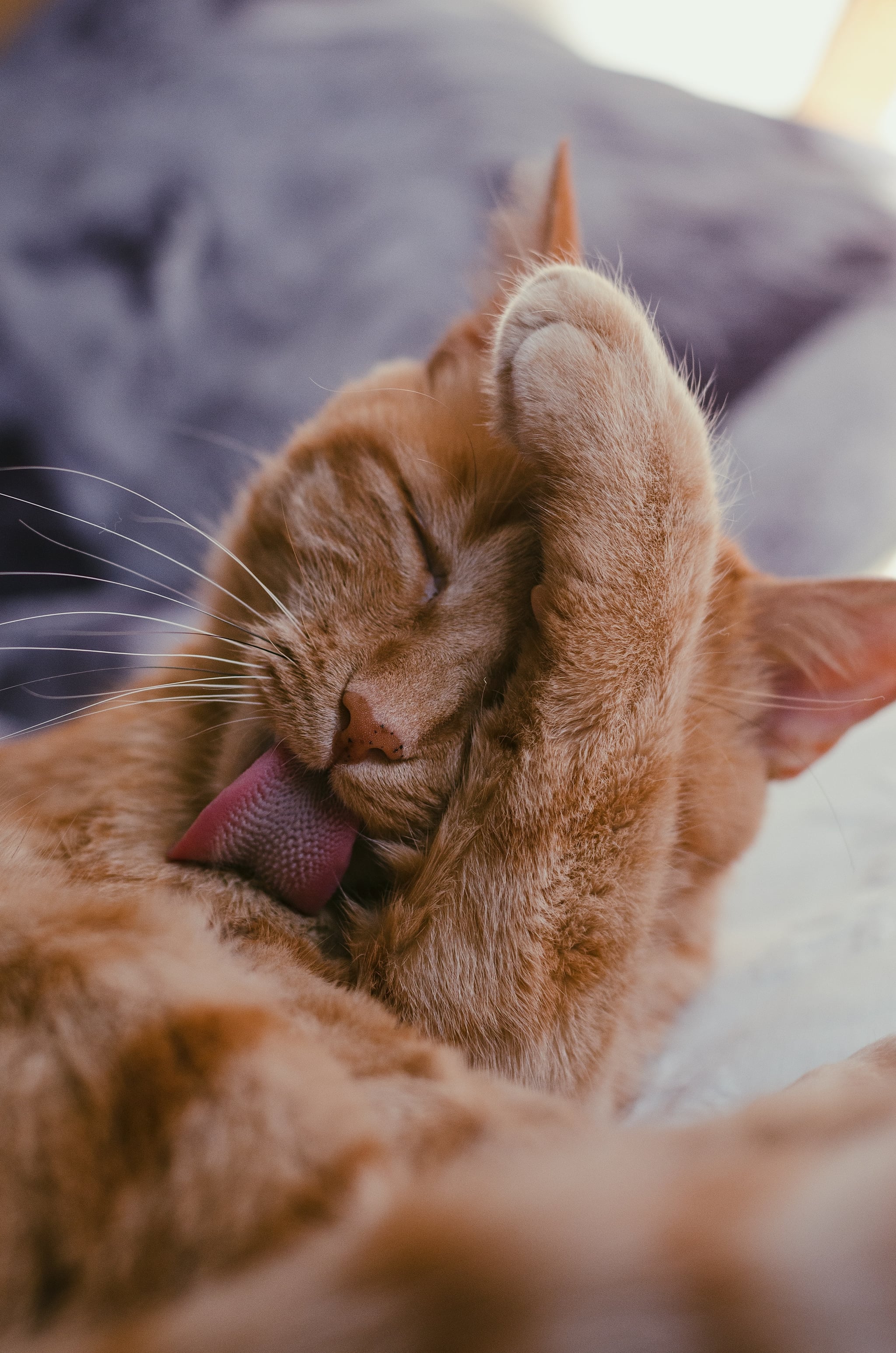
As someone who grew up with dogs, a pet throwing up was always a sign to me that something was wrong — but then I adopted two cats [1], and my goodness, do they puke a lot. As animals who groom themselves, cats tend to cough up hairballs fairly often, and while the frequency is different for every cat, the action itself isn't usually a cause for concern unless it starts to become a more common occurrence out of nowhere. Because one of my cats has longer fur and coughs up hair about once a week, I was desperate for some kind of remedy that could potentially help both of my cats digest more of the hair they inevitably ingest, resulting in less puke to clean (and of course, so that they don't have to go through it as much — nobody likes throwing up!).
Enter: hairball lubricant gels.
I spoke with Dr. Zay Satchu [2], chief veterinary officer and cofounder of Bond Vet [3] in New York, who answered some of my most burning questions about hairball gels, and even offered up one of her favourite brands. If you have a puke-prone kitty, keep reading to learn more.
Should You Give Your Cats Hairball Gels?
Although every cat is different when it comes to how often they experience hairballs, they are considered a normal occurrence and part of the grooming and digestion process. Before reaching for hairball gels, however, you should ensure that nothing is wrong with your fur baby. "Usually, they have no problem digesting [fur] and will only cough up a hairball occasionally," Dr. Zay told POPSUGAR, adding that it's difficult to say how often is too often when it comes to your cat throwing up.
"There is no strict rule of X number of hairballs indicates a problem. Instead, I urge fur parents to monitor changes in hairball behaviours. If Fluffy only vomits a hairball once a month and then suddenly she is vomiting hairballs one or more times per week, it may be a sign that something is going on. We can see an increase in hairballs if cats are experiencing increased fur loss (skin conditions, fleas, food allergies, etc.) or decreased gastrointestinal motility. If you're noticing this, it's probably time to bring Fluffy for a check up."
"Generally speaking, hairball remedies are given daily — similar to humans taking a supplement."
If you're in tune with your cat's . . . schedule? . . . when it comes to hairballs and you're either confident there's nothing amiss or have spoken to your vet about their tendencies, hairball gels can be a great thing to reach for. "Generally speaking, hairball remedies are given daily — similar to humans taking a supplement." However, she noted, "if your cat has food allergies or is taking other oral medications, speak with your veterinarian prior to starting a supplement or hairball remedy to ensure it is safe to do so."
Do Hairball Gels Really Work?
Once you've decided that hairball gels may be the right choice for your ball of fluff, be aware that these lubricants aren't necessarily a cure-all, but can definitely help in a lot of cases.
"Not all products are created equal, and not all cats read the label," Dr. Zay joked. "Most hairball remedies are oil or petroleum based and work by lubricating the hair to help it pass through the gastrointestinal tract. Their efficacy varies from pet to pet, based on frequency of administration and compliance on the cat's part."
Dr. Zay shared that one of the hairball gel brands she recommends is petroleum-based. "Laxatone [5] ($11) is a great hairball remedy gel," she said, adding, "[It] comes in flavours like tuna to help entice cats to eat it."
